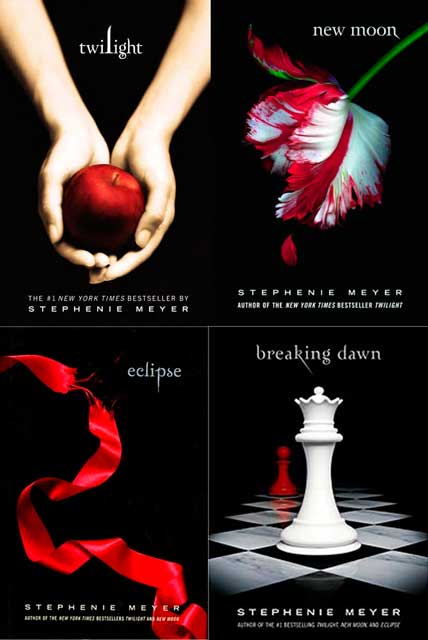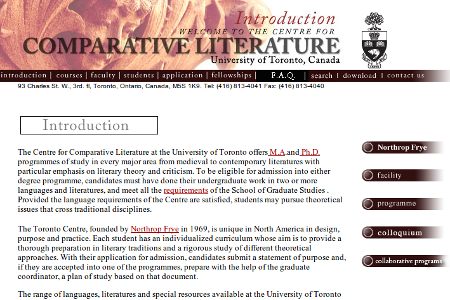Below is a statement in response to the July 15, 2010 memorandum from Vice Dean Baker, available here, presented to Vice Dean Baker and Vice Dean Smyth (SGS) in a meeting on August 24, 2010. Link to the statement here.
The recommendation of the University’s Strategic Planning Committee to disestablish the Centre for Comparative Literature as part of the creation of a new School of Languages and Literatures has caused considerable alarm across the University of Toronto and throughout the global community of humanities scholars. One need only peruse the dozens of letters written by the world’s leading humanists, or scan the thousands of signatures on the petition to preserve Comparative Literature, or spend a few minutes assessing the growing media coverage of the SPC’s proposal, to realize that the Centre is seen globally as unique and preeminent in its mandate and accomplishments, that it stands as one of Canada’s major contributions to humanities scholarship, and that its proposed disestablishment is widely perceived as a symbolic attack on the humanities in general and as a particular statement about Canada’s new scholarly priorities. There now remains no doubt what the proposed disestablishment of the Centre would mean for U of T’s reputation and prestige in the humanities; the voices from our peer institutions have weighed in and continue to weigh in, and their opinions are virtually unanimous. General bewilderment surrounds the SPC’s proposal, which has, so far, failed to publicly offer a defense of itself in budgetary terms and, more importantly, failed to articulate any coherent intellectual justification for its recommendations, including the creation of a School of Languages and Literatures and most especially the disestablishment of the Centre for Comparative Literature. That these proposals were made by a committee of 12 members whose proceedings and deliberations remain confidential only increases the general feeling of isolation, disregard, and inability to understand the proposal or its justifications. The directors and faculty of all the affected departments and centres are left to feel angry and slighted, and to conclude that their disciplines were not understood or treated with respect by the members of the SPC.
No one, however, has been more shocked, confused, hurt or anxious than the current students of the Centre for Comparative Literature. Not only do we concur with the sentiments of our administrators and professors, as well as those of our peers around the world, but we must also consider the implications of this proposal for our remaining years as graduate students at U of T and for our careers as professional academics in the field of comparative literature. Of course, this assessment leaves us with many troubling questions, some shared by all and some highly individual—concerning our own research and supervisory needs. We thank Vice-Dean Baker and Vice-Dean Smyth for making time to field our questions in person and sincerely hope that this session will help us as students to better understand the positions and priorities of the Faculty of Arts and Sciences, and help the Faculty, represented by Vice-Dean Baker, and the School of Graduate Studies, represented by Vice-Dean Smyth, to better understand our concerns, positions and priorities.
In the interest of maximizing clarity and productivity during our brief meeting together, we respectfully put forward the following points, agreed upon by the members of our student body, as a foundation for today’s discussions:
1) We strongly disagree with the SPC’s assessment of our Centre as home to an outmoded discipline whose work is done. The backhanded compliment that “the Centre has succeeded beyond its wildest dreams” simply does not ring true. The notion of a discipline too successful for its own good is absurd and not applied to any other discipline whose central texts are widely read. We strongly assert that, first, the SPC is incorrect to say that the teaching of critical theory is now widespread in the humanities disciplines. This is not the case, as even a cursory perusal of course lists in the national-literature departments reveals. For this reason, students from all these departments come to comparative literature for coursework in critical theory, and some of these departments require their students to take courses in comparative literature in order to obtain a “theory” minor. Moreover, we remind the SPC that, although comparative literature was historically the home of continental philosophy, disseminating this body of thought was never the sole purpose of comparative literature but only one of its pragmatic tasks. We find it hard to believe that any serious scholarly assessment of the work done in comparative literature at U of T, in its relation to the work done by other humanities departments, would find it redundant, antiquated, or superfluous. Therefore, we are suspicious that such an assessment was not undertaken. If it was, we respectfully request to see it. If it was not, we respectfully request that it be undertaken in good faith and with full transparency before any further discussion of comparative literature’s ostensible redundancy.








